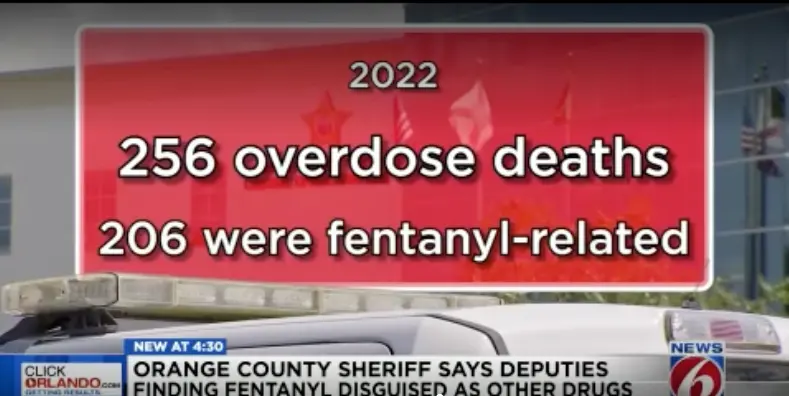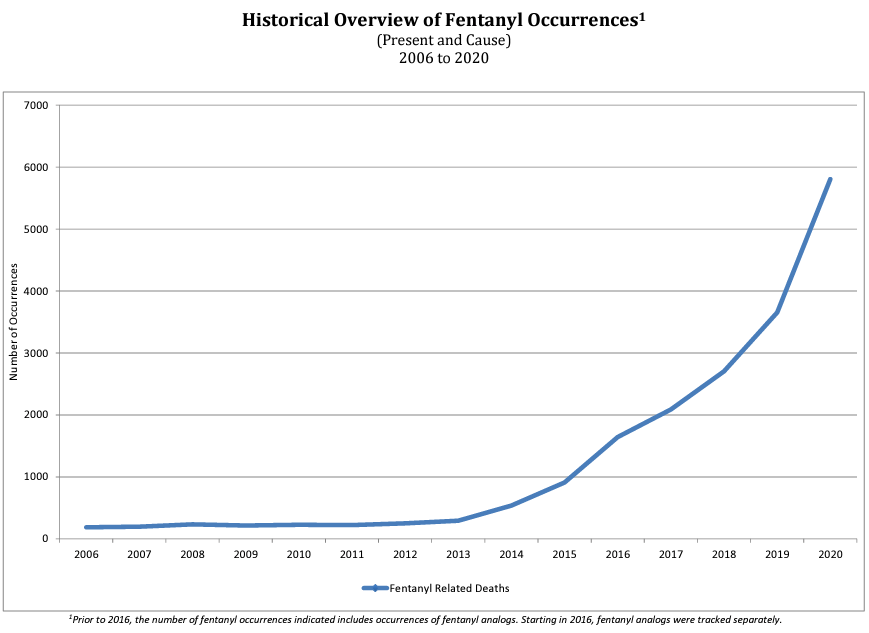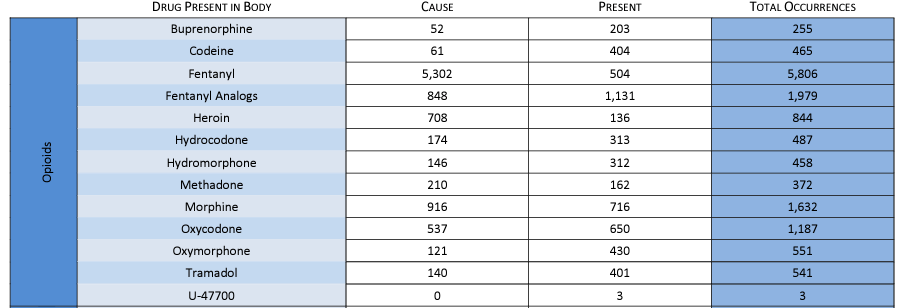Unveiling the Drug Crisis in Orange County, Florida: Causes, Consequences, and Solutions
Orange County, located in the heart of Florida, is a region grappling with a significant drug crisis. With a diverse population and a thriving tourism industry, the county has faced substantial challenges in combating drug abuse and addiction. This article aims to provide a comprehensive overview of the drug crisis in Orange County, exploring its causes, consequences, and potential solutions. By examining the available data and reliable sources, we can shed light on the extent of the problem and the efforts being made to address it.

The Prevalence of Drug Abuse:
According to the Substance Abuse and Mental Health Services Administration (SAMHSA), Orange County has experienced a surge in drug overdoses and substance use disorder in recent years. Statistics reveal that:
Opioids:
Opioid abuse, including prescription painkillers and illicit drugs like heroin, has reached alarming levels. Orange County has witnessed a rise in opioid-related deaths, mirroring a nationwide trend.
Methamphetamine:
The county has also experienced an upswing in methamphetamine abuse, reflecting a concerning trend observed across the state.
Synthetic Drugs:
The emergence of synthetic drugs, such as synthetic cannabinoids (commonly known as “Spice” or “K2”) and synthetic cathinones (known as “bath salts”), has contributed to the drug crisis in Orange County.
Factors Contributing to the Drug Crisis:
Understanding the underlying factors contributing to the drug crisis is crucial in formulating effective strategies to stop drug dealers, find ways to prevent easy access to street and prescription drugs and help those who truly want to stop using fentanyl, heroin, xanax, and alcohol, find treatment.
Some notable factors include:
Easy Access to Prescription Drugs:
The widespread availability and over-prescription to prescription drugs, especially opioids have fueled the opioid epidemic, leading to addiction and subsequent illicit drug use.
Economic and Social Disparities:
Poverty, unemployment, and lack of access to education and healthcare are contributing factors that increase the vulnerability of individuals to drug abuse.
Demographic Factors:
Certain demographics, such as young adults and veterans, may face unique challenges and be at higher risk of substance abuse.

Consequences of the Drug Crisis
The opioid, heroin, and fentanyl crisis in Orange County has had severe consequences, affecting individuals, families, and communities.
“We’re finding fentanyl mixed into almost every single drug out there, last year, 206 of the 256 overdose deaths were fentanyl-related” – Orange County Sheriff John Mina
The repercussions include:
Health Impacts:
Substance abuse leads to a range of health problems, including overdose, infectious diseases, mental health disorders, and increased strain on healthcare systems.
Crime Rates:
Drug addiction often drives individuals to engage in criminal activities to fund their habits, contributing to increased crime rates in affected communities.
Economic Burden:
The drug crisis places a significant economic burden on Orange County, impacting productivity, healthcare costs, and law enforcement resources.
Initiatives and Solutions
Recognizing the urgency of the situation, various stakeholders have implemented initiatives to address the drug crisis in Orange County.
These initiatives include:
Prevention Programs:
Implementing evidence-based prevention programs in schools and community centers to educate individuals about the risks associated with drug use.
Treatment and Rehabilitation:
Expanding access to treatment facilities, including medication-assisted treatment, counseling, and support services, to help individuals recover from addiction.
Harm Reduction Strategies:
Adopting harm reduction strategies, such as naloxone distribution programs and syringe exchange programs, to prevent overdose deaths and reduce the transmission of infectious diseases.
Community Partnerships:
Building strong partnerships between law enforcement agencies, healthcare providers, community organizations, and local residents to collaborate on comprehensive solutions.

Orange County Government in Florida Committed to Combat Opioid Overdoses and Overdose Deaths
Free Naloxone Nasal Spray Kits Available – The Florida Department of Health in Orange County (DOH-Orange) has announced the availability of free Naloxone (Narcan) Nasal Spray kits as part of its efforts to address the opioid overdoses, reduce drug overdoses and drug overdose deaths.
Naloxone is a medication that can reverse the effects of an opioid overdose, potentially saving lives. The details on the availability of these kits, eligibility requirements, distribution locations, and the broader initiatives aimed at battling the opioid epidemic in the region.
Stop Fatal Overdoses – Free Naloxone Nasal Spray Kits
The Department of Health-Orange County government is offering free Naloxone Nasal Spray kits to individuals at risk of experiencing an opioid overdose, those who have a history of drug use, individuals who use drugs, friends, family members, and others who may witness an overdose.
Each kit contains two Naloxone nasal sprays, which can be administered by bystanders before emergency medical assistance arrives. It is important to note that Naloxone does not replace professional medical care, and individuals should still call 911 immediately when an opioid overdose is suspected.
Eligibility and Distribution Locations
To obtain a kit from the Department of Health -Orange County government office, individuals must be 18 years old or older and fall into one of the following categories:
- at risk of experiencing an opioid overdose
- a caregiver likely to witness an overdose
- someone who may experience or witness an opioid overdose
The kits can be obtained at DOH-Orange offices located at the following addresses during regular business hours from Monday to Friday:
1. DOH-Orange Central Building #3: Immunization and TB/Refugee Health – 901 West Church Street, Orlando, FL 32805.
2. DOH-Orange Central Building #2: Vital Stats and Health Informatics & Records Management – 907 West Church Street, Orlando, FL 32805.
3. DOH-Orange Lila Mitchell Center, Suite B: Sunshine Care Center and STD Clinic – 5151 Raleigh Street, Orlando, FL 32811.
4. DOH-Orange Westside WIC, Suite 232: Women, Infants & Children (WIC) – 6218 W. Colonial Drive, Orlando, FL 32808.
5. DOH-Orange Southside Center: Family Planning / Prenatal and WIC – 6101 Lake Ellenor Drive, Orlando, FL 32809.
Administering Naloxone
Naloxone is designed to be administered by bystanders, even if they are not healthcare professionals, in situations where emergency medical assistance may not be immediately available. However, it is crucial to understand that Naloxone is not a substitute for professional medical care. In cases of suspected opioid overdose, individuals should promptly call 911 for immediate medical attention.
Recognizing the signs of an opioid overdose is essential for timely intervention. These signs may include slowed or ceased breathing, loss of consciousness or unresponsiveness, constricted pupils, weak pulse, and a bluish or pale skin color.
In the case of a fentanyl overdose, swift action is crucial. Seeking medical assistance immediately or administering naloxone, either through injectable form or nasal spray, can potentially save lives.
Available Resources, Support and Initiatives
The availability of Naloxone kits through county health departments, such as DOH-Orange County, plays a crucial role in increasing access to this life-saving medication and supporting individuals dealing with substance use disorders. These efforts are part of the broader response to the overdose crisis in Florida.
The Florida Department of Health collaborates with the Florida Department of Children and Families through the Overdose Prevention Program (iSaveFL), which facilitates the distribution of Naloxone kits to families, friends, and caregivers of those at risk of opioid overdose.
Furthermore, the state’s HEROS (Helping Emergency Responders Obtain Support) program provides free Naloxone to emergency response agencies, enabling first responders to address overdose situations promptly.
Governor Ron DeSantis launched the Coordinated Opioid Recovery (CORE) program, the first of its kind in the nation, to provide comprehensive and sustainable care for individuals affected by substance use disorder.
The availability of free Naloxone Nasal Spray kits through the Florida Department of Health in Orange County offers a valuable resource in the fight against the opioid crisis and opioid overdoses. By providing Naloxone to individuals at risk of opioid overdose and those who may witness an overdose, the aim is to prevent substance abuse, drug overdoses, and deaths.
Conclusion
The drug problem and crisis in Orange County, Florida, is a complex issue with profound consequences for individuals and community members. Addressing this crisis requires a multifaceted approach that combines prevention, treatment, and harm reduction. Narcotics Anonymous is free and has a 24 hour hotline if someone needs a meeting right away or to talk to someone who understands: 407-425-5157 or 866-579-8333
Local 12 Step Websites
COSA: http://www.cosa-recovery.org
CODA: http://www.onlinecoda.net
Al-Anon: http://al-anonorlando.org (online meetings available)
Smart Recovery: http://www.smartrecovery.org/ (online meetings available)
Resources:
https://orange.floridahealth.gov/newsroom/2022/12/substance-abuse-deaths.html
https://www.orangecountyfl.net/FamiliesHealthSocialSvcs/OrangeCountyHeroinTaskForce.aspx
https://www.isavefl.com/find-naloxone.shtml
https://www.floridahealth.gov/licensing-and-regulation/ems-system/heros.html
